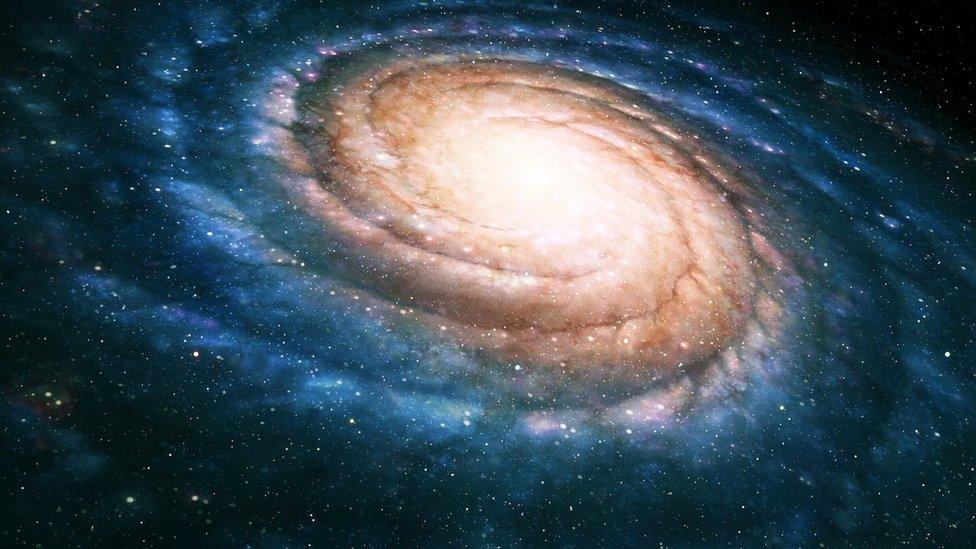Biggest galaxy ever recorded discovered by scientists
- Published
- comments

In exciting space news, the largest galaxy EVER recorded has been discovered by scientists.
But there's one catch - no one knows why it's so big!
It's been named Alcyoneus, and it's 16.3 million light years wide. That's a whopping 160 times wider than the galaxy we live in, the Milky Way!
It's named after an Ancient Greek Giant that fought the legendary hero Hercules.
What is a galaxy?
NASA defines a galaxy as "a huge collection of gas, dust, and billions of stars and their solar systems, all held together by gravity."
The one we live in is called the Milky Way. When you look up into the sky, all the stars and planets you can see also live with us in our galaxy.
Alcyoneous is 3 billion light years away from Earth, and so you can only see it using specialist equipment.
The gigantic galaxy was found by scientists completely by chance!
The newly discovered giant is a type of radio galaxy. This means it has a supermassive black hole in the middle of it, which pulls matter, light, gas and energy towards it, gobbles it up, and spits it back out again.
The matter that is spat out is called plasma. hot gas that is thrown out into space, and as it slows down it gives off radio waves.
A black hole is made when the centre of a very big star falls in upon itself, or collapses.
All the matter of the star becomes squeezed into a tiny space and the force of gravity increases greatly.
This pulls everything around the black hole towards it.
How did scientists find it?
These radio waves are how researchers were able to discover Alcyoneus.
They were looking through data collected by something called the Low Frequency Array (LOFAR). This is a network of around 20,000 radio telescopes dotted across 52 locations in Europe.
These radio telescopes picked up on the radio waves produced by the monster galaxy, and the scientists then spotted it completely by accident.
Apart from its size, Alcyoneous is apparently a completely normal radio galaxy, so the researchers think studying it can help them to understand why some galaxies grow so large, and others don't.
- Published17 February 2022
- Published17 February 2022
- Published13 February 2023
